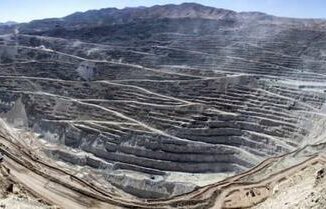
Energy News Beat Publishers Note (ENB): The current path is a long-term energy mix that will impact the less fortunate hardest. The current events of western oil companies not able to produce more, and with demand increasing this will leave Russia and Iran to fill the gap. They will enjoy the higher prices and fund their agendas. Africa is losing income from the majors shutting in exploration and production efforts and not even will be able to afford their basic social responsibility budgets. The bottom line: We all want to produce less pollution while taking care of all country’s people, with providing the lowest kWh to the consumers. Anything less is going to be a downward spiraling economic impact on the folks that need the most help. Let’s talk and make a plan that is best for everyone. Right now nobody is talking the same language of humanity.
-“This time is different” may be the most dangerous words in business: billions of dollars have been lost betting that history won’t repeat itself. And yet now, in the oil world, it looks like this time really will be.
For the first time in decades, oil companies aren’t rushing to increase production to chase rising oil prices as Brent crude approaches $70. Even in the Permian, the prolific shale basin at the center of the U.S. energy boom, drillers are resisting their traditional boom-and-bust cycle of spending.

The oil industry is on the ropes, constrained by Wall Street investors demanding that companies spend less on drilling and instead return more money to shareholders, and climate change activists pushing against fossil fuels. Exxon Mobil Corp. is paradigmatic of the trend, after its humiliating defeat at the hands of a tiny activist elbowing itself onto the board.
The dramatic events in the industry last week only add to what is emerging as an opportunity for the producers of OPEC+, giving the coalition led by Saudi Arabia and Russia more room for maneuver to bring back their own production. As non-OPEC output fails to rebound as fast as many expected — or feared based on past experience — the cartel is likely to continue adding more supply when it meets on June 1.
‘Criminalization’
Shareholders are asking Exxon to drill less and focus on returning money to investors. “They have been throwing money down the borehole like crazy,” Christopher Ailman, chief investment officer for CalSTRS. “We really saw that company just heading down the hole, not surviving into the future, unless they change and adapt. And now they have to.”
Exxon is unlikely to be alone. Royal Dutch Shell Plc lost a landmark legal battle last week when a Dutch court told it to cut emissions significantly by 2030 — something that would require less oil production. Many in the industry fear a wave of lawsuits elsewhere, with western oil majors more immediate targets than the state-owned oil companies that make up much of OPEC production.
“We see a shift from stigmatization toward criminalization of investing in higher oil production,” said Bob McNally, president of consultant Rapidan Energy Group and a former White House official.
Railway wagon bogies beside a Royal Dutch Shell Plc logo on an oil silo at the Shell Pernis refinery in Rotterdam, Netherlands, on Tuesday, April 27, 2021. Shell reports first quarter earnings on April 29.
While it’s true that non-OPEC+ output is creeping back from the crash of 2020 — and the ultra-depressed levels of April and May last year — it’s far from a full recovery. Overall, non-OPEC+ output will grow this year by 620,000 barrels a day, less than half the 1.3 million barrels a day it fell in 2020. The supply growth forecast through the rest of this year “comes nowhere close to matching” the expected increase in demand, according to the International Energy Agency.
Beyond 2021, oil output is likely to rise in a handful of nations, including the U.S., Brazil, Canada and new oil-producer Guyana. But production will decline elsewhere, from the U.K. to Colombia, Malaysia and Argentina.
As non-OPEC+ production increases less than global oil demand, the cartel will be in control of the market, executives and traders said. It’s a major break with the past, when oil companies responded to higher prices by rushing to invest again, boosting non-OPEC output and leaving the ministers led by Saudi Arabia’s Abdulaziz bin Salman with a much more difficult balancing act.
Drilling Down
So far, the lack of non-OPEC+ oil production growth isn’t registering much in the market. After all, the coronavirus pandemic continues to constrain global oil demand. It may be more noticeable later this year and into 2022. By then, vaccination campaigns against Covid-19 are likely to be bearing fruit, and the world will need more oil. The expected return of Iran into the market will provide some of that, but there will likely be a need for more.
When that happens, it will be largely up to OPEC to plug the gap. One signal of how the recovery will be different this time is the U.S. drilling count: It is gradually increasing, but the recovery is slower than it was after the last big oil price crash in 2008-09. Shale companies are sticking to their commitment to return more money to shareholders via dividends. While before the pandemic shale companies re-used 70-90% of their cash flow into further drilling, they are now keeping that metric at around 50%.
The result is that U.S. crude production has flat-lined at around 11 million barrels a day since July 2020. Outside the U.S. and Canada, the outlook is even more somber: at the end of April, the ex-North America oil rig count stood at 523, lower than it was a year ago, and nearly 40% below the same month two years earlier, according to data from Baker Hughes Co.
When Saudi Energy Minister Prince Abdulaziz predicted earlier this year that “‘drill, baby, drill’ is gone for ever,” it sounded like a bold call. As ministers meet this week, they may dare to hope he’s right.



